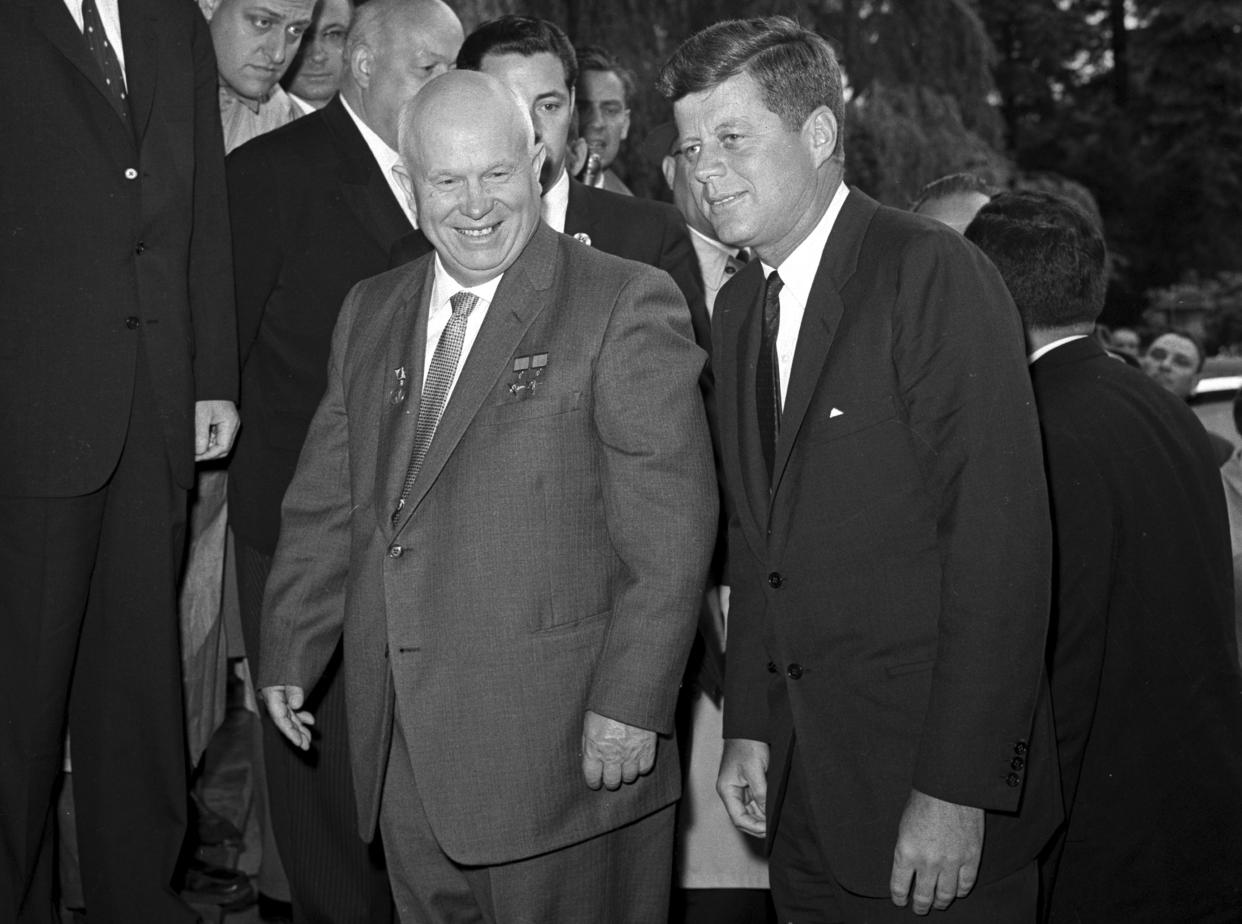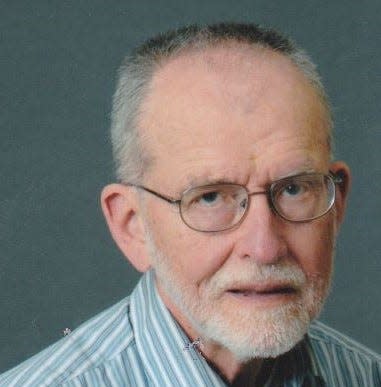Paul deLespinasse: A message to Americans from Nikita Khrushchev's gravesite

- Oops!Something went wrong.Please try again later.
- Oops!Something went wrong.Please try again later.
- Oops!Something went wrong.Please try again later.
Visiting Moscow in 1989, I opted not to visit Vladimir Lenin's mausoleum in Red Square, a major tourist attraction. Instead, I took in Nikita Khrushchev's tomb.
Lenin brought great misery to Russians by overthrowing the democratic liberals who ruled after Czar Nicholas II abdicated in 1917. He thereby paved the way for Josef Stalin's dictatorship.
Khrushchev had been a henchman of Stalin, participating in his many crimes, but initiated de-Stalinization reforms when he succeeded to the top position. .
Long lines always waited to see Lenin's mummified body. But there was also a crowd waiting to enter the Novodevichy Cemetery, where Khrushchev was buried along with other bigwigs including famed composer Dmitri Shostakovich.
During an hour-long wait, I conversed with a pleasant woman, an English teacher from the Stavropol area. Her English was better than my Russian.
She insisted on paying for my ticket into the cemetery — an excellent investment of one ruble. Upon returning to the U.S., I mailed her a big package of newspapers for her students to read. (They were fascinated how inexpensive the furniture advertised was!)

The striking monument at Khrushchev's grave combines white marble, symbolizing the good that he did as Soviet leader, and black marble, symbolizing the horrible things he had done previously. Although Khrushchev was a great leader, it tells us that he was a mixture of good and bad qualities.
In this respect, Khrushchev was not unusual. Most likely, all top political leaders everywhere, and at all times, have not been 100 percent good.
Governing is a messy business. People do very bad things to get or retain power, perhaps especially when they wish to pursue noble objectives using that power. And leaders are limited by circumstances, sometimes having to choose between bad policies and worse ones.
Americans would do well to understand this point. It might help us reconsider the recent enthusiasm for tearing down statues or other honors for early American leaders.
We should not overreact to the fact that they were imperfect people who did not always comply with modern standards.
A notable example: Ten of the first 12 presidents, including George Washington and Thomas Jefferson, owned slaves. In some places around the country, schools named after these people are being renamed. Even some Lincoln schools have also been renamed, because Abraham Lincoln was not in favor of social equality for the slaves he helped free.
But surely these gentlemen, who had to work within the cultures they were born into, also did many commendable things. Any history leaving them out would be very incomplete.
As Akhil Reed Amar's outstanding recent book ("The Words That Made Us: America's Constitutional Conversation," 1760-1840) drives home, without George Washington there never could have been a United States.
Thomas Jefferson penned outstanding general praises of human liberty and (paradoxically) equality. As president, he rescued the country from the threats to free speech enacted during the administration of John Adams and peacefully doubled the size of the country.
And of course Lincoln's contributions to America are well known and widely admired.
Perhaps the recent moves to rename military bases named after Confederate generals are more understandable, since these people were traitors.
Ernest Neizvestny, sculptor of the headstone at Khrushchev's tomb, got matters exactly right. The contrasting white and black granite slabs perfectly symbolize his mixture of wonderful and horrible deeds as a Soviet leader.
Would that Americans could understand that our past leaders deserve a similarly nuanced evaluation!
— Paul F. deLespinasse is professor emeritus of political science and computer science at Adrian College. He can be reached at pdeles@proaxis.com.
This article originally appeared on The Holland Sentinel: Paul deLespinasse: A message to Americans from Nikita Khrushchev's gravesite

